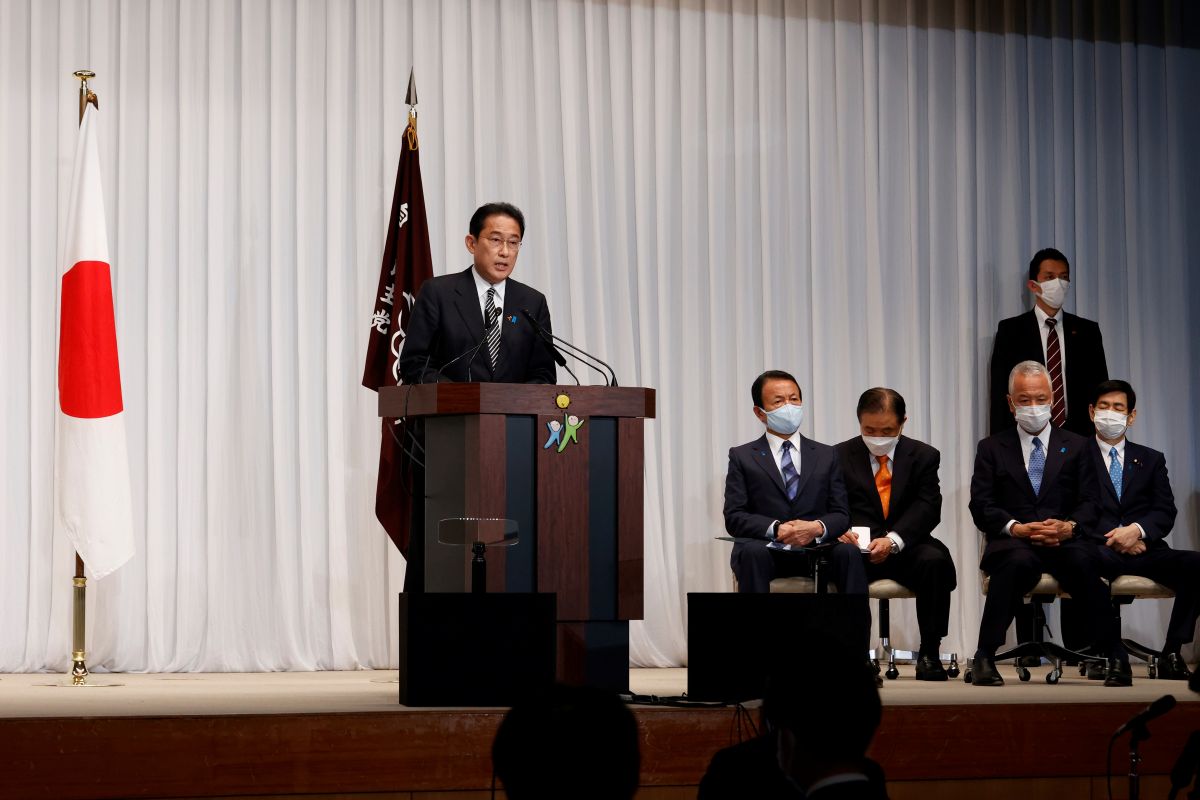The Japanese Government after Parliamentary Elections
The 31 October elections to Japan’s House of Representatives brought another victory for the Liberal Democratic Party (LDP), run by new leader and prime minister Kishida Fumio. The new government will continue to strengthen the alliance with the U.S. and emphasise Japan’s cooperation within the QUAD group on the Indo-Pacific, while trying to maintain proper relations with China.
 Photo: POOL/Reuters/Forum
Photo: POOL/Reuters/Forum
Under what circumstances did the elections take place and what were the results?
The House elections were preceded by the resignation of Suga Yoshihide as prime minister and LDP leader. The LDP won 261 seats in the 465-seat chamber (down from 276 seats). The heads of the LDP and the party Komeito (32 seats) declared their willingness to continue the coalition and to retain the composition of the cabinet. The second-largest grouping in the House will be the Constitutional Democratic Party with 96 seats. The Innovation Party won 41 seats, and the Communists and Democratic Party for the People took 10 and 11 seats, respectively.
Suga, who replaced Abe Shinzō in September 2020, struggled with the difficult situation in the country from the start of his term. Despite public protests triggered by fears of an escalation of the COVID-19 pandemic, he allowed the Olympic Games in Tokyo to go ahead. The government has been accused of being ineffective in the fight against the pandemic and the economic slowdown, which has led to falling household incomes and rising unemployment. To save LDP’s image before the elections, Suga resigned from office on 4 October and Kishida became the new leader.
Who is Japan’s new prime minister?
Kishida, like many of the country’s previous prime ministers, comes from a family with political traditions: his father was an LDP politician who belonged to the Kochikai faction that promoted peaceful foreign policy and liberal values. Kishida also is a member of Kochikai and tries to present himself as a politician seeking agreement in domestic and foreign policy. He has been a member of the House since 1993. Thanks to his high level of activity (despite the marginalisation of Kochikai), Abe named him foreign minister in 2012, a post in which he remained until 2017. Kishida took part shaping policy strengthening the capabilities of the Japanese Self-Defense Forces (JSDF) and deepening security relations with the U.S. He was also at the forefront of efforts to finally sign a peace treaty with Russia after World War II and to settle the issue of the Kuril Islands (Japanese: Northern Territories).
What are Prime Minister Kishida’s domestic policy goals?
In his election campaign, Kishida announced there would be a “fair redistribution of wealth”, a break with the neo-liberal economic policy of abenomics, which in time has allowed large companies to increase profits while the median wage in Japan has remained at the same level for nearly 30 years. The prime minister suggested the need to tighten fiscal policy, but so far has not presented specific plans to increase corporate taxes. The problem in enacting this policy will be the increase in budget expenditure, including on economy stimulus packages, with a simultaneous decline in tax revenues.
The government’s priority will be fighting the COVID-19 pandemic and its consequences. While the vaccination programme, despite the initial scepticism of citizens, has been successful (73% are fully vaccinated) and the number of COVID-19 cases is falling, Japan remains closed to tourism, and blockages in global supply chains are exacerbating problems for companies exporting finished goods.
What will be the most important challenges for the new government’s foreign policy?
Kishida will be eager to continue to increase the JSDF’s budget, which began before the elections and is in line with the U.S. demands of its allies in the region, along with a fulfilment of the promise to the party conservatives who helped Kishida take power in the LDP. Although Kishida is more a pacifist than Abe and Suga, his government will have to formulate a programme that factors in the deepening Sino-U.S. rivalry. Kishida will want to maintain proper economic relations with China, while also deepening political and military cooperation with the U.S. The new prime minister personally stressed the fundamental importance of the U.S. to Japan’s security interests.
Kishida sees the QUAD as a means to make a free and open Indo-Pacific a reality. The government also will want to deepen the involvement of partners from outside the region. It is in Japan’s interest to make the most of the free trade agreement with the EU and the agreement concluded in 2020 with the United Kingdom. Kishida likely hopes that a deepening of economic relations with these partners will result in their increased interest in Indo-Pacific security policy.


